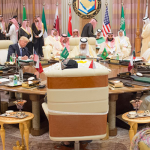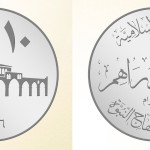The Economist, in its latest cover editorial, appears to be solidly behind the concept of “linkage” in its call for greater U.S. leadership in resolving the Israeli-Palestinian conflict.
Linkage—a concept endorsed by the top levels of the U.S. military and the Obama administration–is a position that holds that ending the Israeli-Palestinian conflict will remove a significant source of propaganda for Islamist extremists. Needless to say, the concept is a touchy subject which neoconservatives are quick to deny.
The Economist warns that consequences could be disastrous if a second war between Hezbollah and Israel is allowed to develop.
The authors write:
All of this should give new urgency to Arab-Israeli peacemaking. To start with, at least, peace will be incomplete: Iran, Hizbullah and sometimes Hamas say that they will never accept a Jewish state in the Middle East. But it is the unending Israeli occupation that gives these rejectionists their oxygen. Give the Palestinians a state on the West Bank and it will become very much harder for the rejectionists to justify going to war.
The Economist takes the view that the strategy of encouraging Israeli and Palestinian leadership to negotiate has run its course. Instead, the message to the Obama administration is “Don’t Mediate. Legislate.”
Taking into consideration the mainstream acceptance of a publication such as The Economist, one can see that this is an important article targeted at a specific readership within the Washington establishment.
They say:
Instead of giving up, Mr Obama needs to change his angle of attack. America has clung too long to the dogma that direct talks between Israel and the Palestinians are the way forward. James Baker, a former secretary of state, once said that America could not want peace more than the local parties did. This is no longer true. The recent history proves that the extremists on each side are too strong for timid local leaders to make the necessary compromises alone. It is time for the world to agree on a settlement and impose it on the feuding parties.
The outline for such an imposed settlement, says The Economist, was laid out at the 2000 Camp David Summit.
Mr Clinton unveiled his blueprint at the end of a negotiation that had failed. Mr Obama should set out his own map and make this a new starting point. He should gather international support for it, either through the United Nations or by means of an international conference of the kind the first President Bush held in Madrid in 1991. But instead of leaving the parties to talk on their own after the conference ends, as Mr Bush did after Madrid, America must ride herd, providing reassurance and exerting pressure on both sides as required.
The article goes on to make the case that pressuring Israeli and Palestinian leadership is in the interest of the U.S.: “America is far from weak in the Levant, where both Israel and the nascent Palestine in the West Bank continue to depend on it in countless vital ways.”
The endorsement of linkage and the call for greater U.S. leadership in ending the Israeli-Palestinian conflict are important pieces in resolving U.S. security concerns in the Middle East.
Resolving the Israeli-Palestinian conflict serves as the most important step U.S. leadership can take to secure their interests in the region. The administration has already endorsed linkage. Now The Economist is pushing the White House toward the next logical step in the process.




